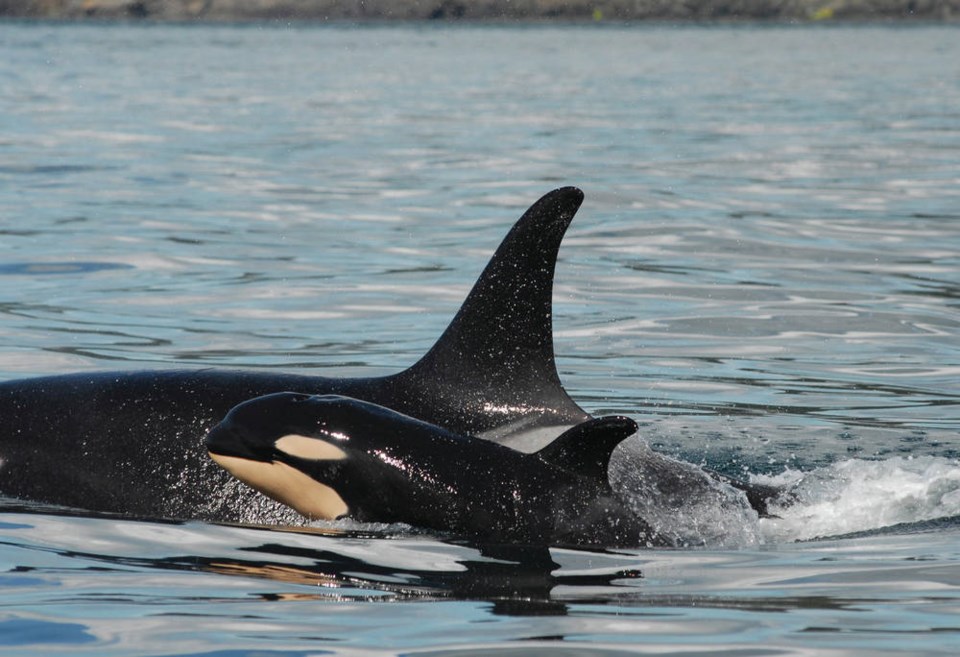Environmental groups are worried that the U.S. Navy’s activity in southern resident killer whale habitat spells trouble for the endangered animals.
The navy has had authorization for decades to conduct testing and training in the waters of the Pacific Northwest, including Juan de Fuca Strait and Puget Sound. The previous permit, which authorized activities such as testing and training with sonar, firing torpedoes and dropping bombs from aircraft, was set to expire this month.
The renewed authorization gives the navy permission to conduct activities that could result in 51 incidents that disturb a southern resident killer whale’s behaviour each year, up from two per year previously. The authorization expires in November 2027.
Scientists and environmental groups are worried about the impact on the 74 endangered southern resident killer whales, which live along the West Coast from the B.C.-Washington border to California.
Deborah Giles, a research scientist at the University of Washington’s Center for Conservation Biology, previously told the Times Colonist the navy’s activities have the potential to disrupt the whales’ foraging, breeding, socializing and resting habits.
“When you’re talking about a population that is desperate for food and nourishment, any sort of disruption in foraging is something to take seriously,” Giles said, adding the whales could be forced to travel out of their habitats for food, which is already scarce.
Giles works for the non-profit Wild Orca, one of 29 organizations that signed a letter in the summer expressing concern that the navy’s proposal would amount to “high levels of harassment” of southern resident killers whales.
While the decision to green-light the navy’s training and testing activities was not surprising, Wild Orca called it “disappointing,” saying lawsuits may follow.
The renewed authorization closely resembles the previous agreement, said John Mosher, an environmental planner for the navy’s northwest operations, but it does include some new activities, such as using unmanned underwater vehicles, made possible by updated equipment and technology.
The increase in potential incidents that disturb or harm southern resident killer whales is due in part to those new activities, as well as an improved understanding of where the whales spend their time, Mosher said.
“It’s not a direct apples-to-apples comparison,” he said. “There are differences between how we do the analysis now from what was done five years ago.”
Mosher also said that while the navy estimated its activities could result in 51 incidents that disturb orcas, the conservative modelling is designed to give the maximum number of potential disturbances. For example, the model assumes southern residents are in both Puget Sound and in offshore waters near Washington, when they are likely to be in one or the other, he said.
“We’re basically double counting the probability that we could affect them if they happen to be in the same location that we are,” he said. “There’s also the assumption that we would conduct 100 per cent of the proposed activities each year. That never occurs.”
Researchers fear the navy’s activities have the potential to injure or kill whales, and could affect the entire small population.
Mosher said there have been no deaths of marine mammals attributed to the navy in the decades it has been conducting training and testing activities in Washington state.
In 2003, southern resident killer whales were documented swimming away from an underwater naval exercise in the Salish Sea. An investigation determined the navy’s activity may have disturbed the animals, Mosher said.



